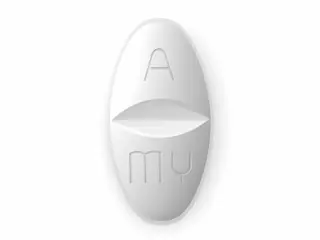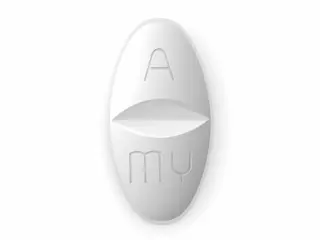| Package | Dosage | Price | Price per Dose | |
|---|---|---|---|---|
| Dosage: 20mg | ||||
| 360 pill | 20mg | £166.66 | £0.46 | |
| 270 pill | 20mg | £137.85 | £0.51 | |
| 180 pill | 20mg | £100.81 | £0.56 | |
| 120 pill | 20mg | £74.06 | £0.62 | |
| 90 pill | 20mg | £60.69 | £0.68 | |
| 60 pill | 20mg | £44.23 | £0.74 | |
| 30 pill | 20mg | £25.71 | £0.85 | |
| Dosage: 40mg | ||||
| 360 pill | 40mg | £203.69 | £0.57 | |
| 270 pill | 40mg | £194.43 | £0.72 | |
| 180 pill | 40mg | £185.17 | £1.03 | |
| 120 pill | 40mg | £137.85 | £1.15 | |
| 90 pill | 40mg | £120.36 | £1.34 | |
| 60 pill | 40mg | £89.50 | £1.49 | |
| 30 pill | 40mg | £52.46 | £1.75 | |

Metoprolol Description
Introduction to Metoprolol
Metoprolol is a widely prescribed medication used primarily for managing cardiovascular conditions. It belongs to a class of drugs known as beta-blockers, which work by affecting the heart and circulation. This medication is often recommended for patients with high blood pressure, angina (chest pain), and certain types of arrhythmias. Its effectiveness and safety profile have made it a staple in the treatment of heart-related issues worldwide.
How Does Metoprolol Work?
Metoprolol functions by blocking the beta-adrenergic receptors in the heart. This leads to a reduction in the heart rate, force of contraction, and the overall workload on the heart. By doing so, it helps lower blood pressure and alleviates symptoms related to excess cardiac stimulation. Its selective nature allows it to target beta-1 receptors predominantly found in the heart, minimizing side effects related to beta-2 receptor inhibition, such as bronchoconstriction.
Benefits of Using Metoprolol
Many patients find relief from symptoms when using Metoprolol. It effectively lowers blood pressure, which decreases the risk of strokes, heart attacks, and kidney problems in hypertensive patients. It also helps prevent angina attacks by reducing the heart’s oxygen demand. For individuals recovering from a myocardial infarction, Metoprolol can improve survival rates and reduce the likelihood of subsequent cardiac events. Its role in controlling arrhythmias makes it a versatile option in various cardiac conditions.
Possible Side Effects and Precautions
While Metoprolol is generally well-tolerated, some users may experience side effects. Common issues include fatigue, dizziness, cold extremities, and gastrointestinal disturbances. In some cases, or in susceptible individuals, it may cause a slowing of the heart rate or blood pressure to dangerously low levels. Patients with asthma or other respiratory conditions should use it cautiously, as it can sometimes cause bronchospasm. Before starting Metoprolol, a thorough medical history and consultation are essential to ensure it is appropriate for the patient’s specific health condition.
Usage Tips and Important Considerations
Metoprolol should be taken exactly as prescribed. It is usually administered once or twice daily, with or without food. Abrupt withdrawal of the medication can lead to a rapid increase in blood pressure or other cardiac symptoms, so dosage adjustments should be made under medical supervision. Regular monitoring of blood pressure and heart rate is important during treatment. Patients should inform their healthcare provider of any other medications they are taking, as interactions with other drugs, such as certain antihypertensives or antidepressants, can occur.
Conclusion
Overall, Metoprolol remains a reliable choice for managing various heart conditions. Its targeted action helps reduce the strain on the heart and improve cardiovascular health. When used responsibly and under medical guidance, it offers significant benefits with manageable side effects. Patients are advised to adhere to prescribed dosages and attend regular check-ups to ensure optimal therapeutic outcomes.



